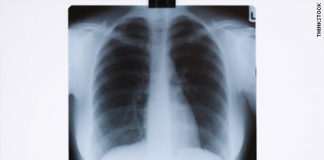Osteoporosis Drugs May Boost Cancer Risk
People who take bisphosphonates, or bone-strengthening drugs for osteoporosis, may have a slightly higher risk of developing esophageal cancer, especially if they take them for several years, a study out this week in the British Journal of Medicine finds.
Increased Risk Of Death In Men With Insomnia And A Short...
A study in the Sept. 1 issue of the journal Sleep found an elevated risk of death in men with a complaint of chronic insomnia and an objectively measured short sleep duration. The results suggest that public health policy should emphasize the diagnosis and appropriate treatment of chronic insomnia.
Chronic Insomnia With Short Sleep Duration Is Significant Risk Factor For...
A study in the April 1 issue of the journal SLEEP is the first to demonstrate that chronic insomnia with objectively measured short sleep time is an independent and clinically significant risk factor for hypertension.
Insomnia With Short Sleep Duration Is A Risk Factor For Diabetes
Individuals with insomnia and objective short sleep duration are at increased risk for developing diabetes, according to a research abstract that will be presented on June 9, at Sleep 2009, the 23rd Annual Meeting of the Associated Professional Sleep Societies.
Midlife Coffee And Tea Drinking May Protect Against Late-Life Dementia
Stockholm, Sweden -- Midlife coffee drinking can decrease the risk of dementia/Alzheimer's disease (AD) later in life. This conclusion is made in a Finnish Cardiovascular Risk Factors, Aging and Dementia (CAIDE) Study published in the Journal of Alzheimer's Disease.
Moderate Coffee Consumption Improves Aortic Distensibility In Hypertensive Elderly Individuals, Study...
A detailed study conducted by a team from the University of Athens on the Aegean island of Ikaria has demonstrated that moderate consumption of coffee by hypertensive elderly individuals can lead to improvements in aortic distensibility, according to a presentation at the European Society of Cardiology's Congress 2010 in Stockholm.
New Evidence That Drinking Coffee May Reduce The Risk Of Diabetes
Scientists are reporting new evidence that drinking coffee may help prevent diabetes and that caffeine may be the ingredient largely responsible for this effect. Their findings, among the first animal studies to demonstrate this apparent link, appear in ACS' Journal of Agricultural and Food Chemistry.
Grapefruit’s Bitter Taste Holds A Sweet Promise For Diabetes Therapy
Naringenin, an antioxidant derived from the bitter flavor of grapefruits and other citrus fruits, may cause the liver to break down fat while increasing insulin sensitivity, a process that naturally occurs during long periods of fasting.
10-Fold Rise In Obesity Surgery In England Since 2000
The use of bariatric or weight loss surgery has increased ten-fold in NHS hospitals in England since 2000, finds a study published online in the British Medical Journal. One reason for this rapid rise is increased demand from obese patients as they become more aware of surgery as a viable treatment option, suggest the researchers.
Insulin Resistance, Type 2 Diabetes Linked To Plaques Associated With Alzheimer’s...
People with insulin resistance and type 2 diabetes appear to be at an increased risk of developing plaques in the brain that are associated with Alzheimer's disease, according to new research published in the August 25, 2010, issue of Neurology®, the medical journal of the American Academy of Neurology.
Fat Distribution Plays A Role In Weight Loss Success In Patients...
Why is it that some people lose weight and body fat when they exercise and eat less and others don't? German researchers say MRI and magnetic resonance (MR) spectroscopy can provide the answer -- and help predict who will benefit from lifestyle changes. Results of the study are published online and will appear in the November issue of the journal Radiology.
A Moment On The Lips, A Year On The Hips
A short period of excess food consumption can have long-term effects on your body weight and fat storage even after the initial weight is lost. A study published in BioMed Central's open access journal Nutrition & Metabolism has found that a four-week episode of increased energy intake and decreased exercise can cause increased weight and fat mass more than two years later when compared to control individuals.













